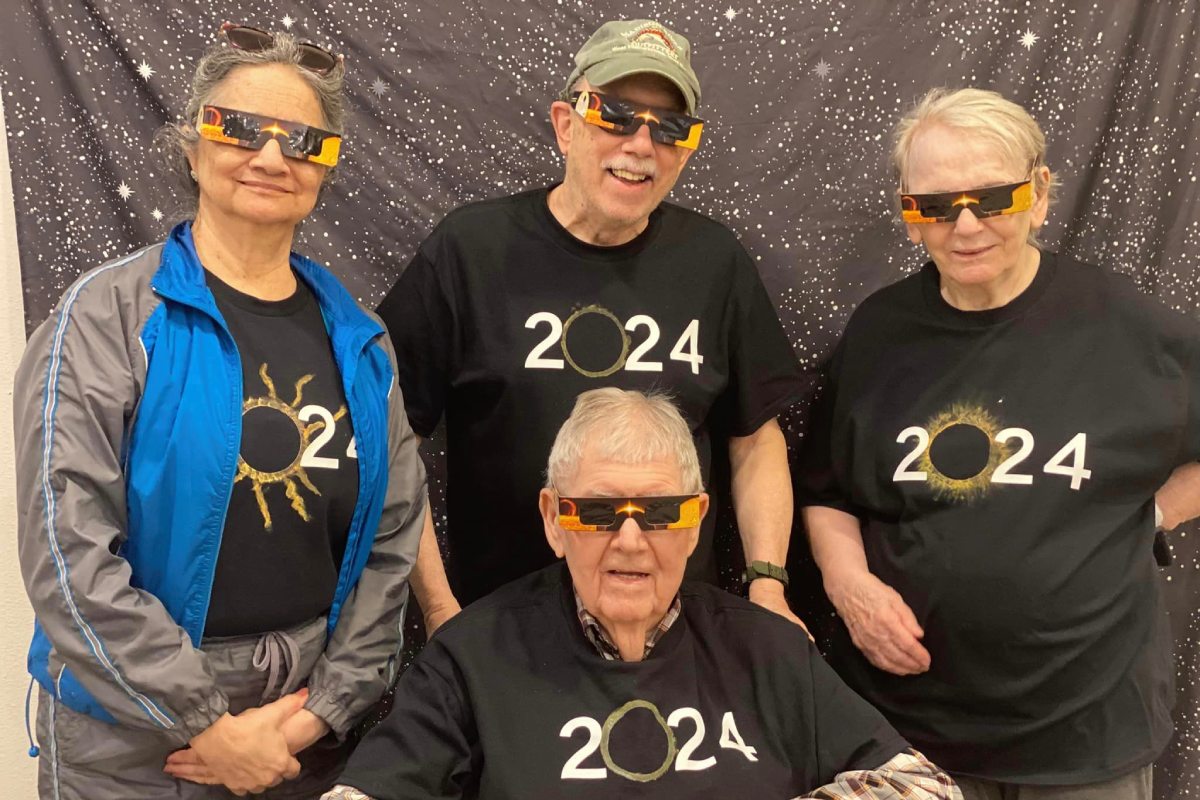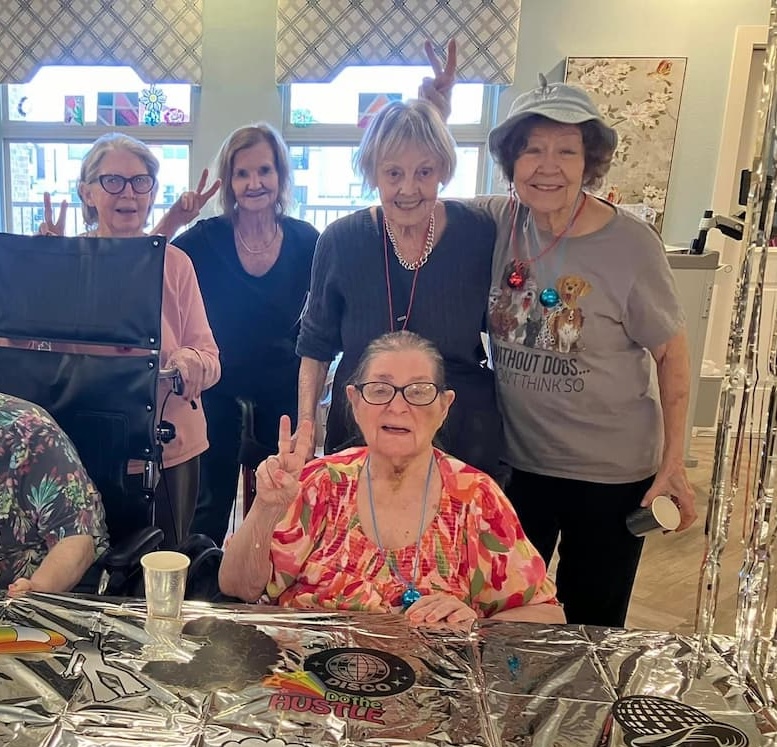As loved ones age, it’s not uncommon for them to exhibit behaviors that may seem out of character or concerning. These behaviors can range from forgetfulness and confusion to agitation and aggression. When this happens, family members might feel unsettled and unsure of the next steps to take.
You are not alone in this journey. The assisted living and memory care team at Buda Oaks can help you realize when a senior loved one’s behaviors may indicate a deeper issue. Below, we explain concerning behaviors in seniors, how to face these challenges, and where to find support.

What are normal changes in senior behavioral health?
Normal aging can impact seniors in various ways. Physically, it often decreases muscle mass and bone density, reducing strength and increasing the risk of falls. Cognitive changes might include slower processing speed and occasional memory lapses.
Emotional well-being may also be affected, with some experiencing feelings of loneliness or loss. However, maintaining a healthy lifestyle, staying socially engaged, and seeking appropriate medical care can help mitigate these effects and promote overall well-being.
Recognizing Concerning Behaviors in Seniors
A senior loved one’s behaviors may indicate a deeper issue, particularly if they exhibit symptoms commonly associated with dementia or other cognitive impairments.
Understanding these symptoms is vital for early detection and appropriate management of dementia. It lays the path for better support and quality of life for seniors and their families.
Common Behaviors in Seniors with Dementia Include:
- Memory Loss: Dementia often manifests with difficulty remembering recent events or information. That can include forgetting important dates and appointments or repeatedly asking for the same information.
- Disorientation: Individuals with dementia may become disoriented about time, place, or even familiar faces. They may have trouble recognizing their surroundings or finding their way home.
- Difficulty with Language: A common dementia symptom is struggling to find the right words or understanding spoken or written language. Communication may become challenging, leading to frustration or withdrawal.
- Impaired Judgment: Dementia can affect decision-making abilities, leading to poor judgment in handling money, making choices, or assessing risky situations.
- Impaired Visual Perception: Some individuals with dementia experience difficulty interpreting visual information, leading to problems with depth perception, object recognition, or understanding images.
- Changes in Mood or Behavior: Dementia can cause significant mood, personality, or behavior shifts. Examples include increased irritability, agitation, or apathy.
- Decreased Motor Skills: As dementia progresses, individuals may experience a decline in motor skills, leading to difficulties with tasks such as dressing, grooming, or coordinating movements.
- Loss of Initiative: A common symptom is a decreased initiative or motivation to engage in activities or social interactions, leading to withdrawal from previously enjoyed hobbies or relationships.
It’s important to note that not all concerning behaviors in seniors indicate dementia. Other factors, like medication side effects, physical discomfort, or emotional distress, can also contribute to behavioral changes.
When to Be Worried and the Steps to Take
While occasional forgetfulness or mood swings may be normal parts of aging, don’t ignore persistent or escalating, worrisome behaviors. It may be time to seek professional guidance when a senior loved one’s behaviors:
- Significantly impact their daily life
- Pose a risk to their well-being of themselves or others
- Cause distress to themselves or those around them
When faced with concerning behaviors in a senior loved one, approach the situation with compassion and empathy. Begin by scheduling a comprehensive evaluation with their primary care physician or a senior behavioral health specialist. They can identify underlying medical conditions or cognitive impairments contributing to the behaviors and guide appropriate treatment recommendations.
In addition to medical evaluation, consider contacting local resources and support groups for assistance. Connecting with other families who have experienced similar challenges can provide valuable insight and emotional support during this time.
Considering Memory Care Communities
For some families, transitioning a senior loved one to a memory care community may be the best option for ensuring their well-being. These senior living communities specialize in personalized care and support for individuals with Alzheimer’s and other forms of dementia. They provide secure environments designed to minimize confusion and agitation while promoting independence and quality of life.
At Buda Oaks, seniors receive round-the-clock supervision and assistance with activities of daily living, such as bathing, dressing, and medication management.
The Retreat at Buda Oaks redefines memory care with a personalized touch. Your loved one isn’t just a resident; they’re a unique individual with passions and preferences.
Through our dedicated programming, we celebrate their individuality, nurture their interests, and encourage new experiences. Our residents enjoy their favorite hobbies and embrace new adventures with our compassionate team supporting them.
Welcome to a place where care isn’t just a duty but a heartfelt commitment to honoring the essence of every resident.
Addressing concerning behaviors in seniors requires patience, understanding, and a proactive approach. By recognizing the common behaviors of dementia, knowing when to seek professional help, and exploring appropriate care options, families can support their senior loved ones through this challenging chapter of life.
Find Personalized Memory Care Excellence at Buda Oaks
Let The Retreat at Buda Oaks provide your loved one with the tailored support they deserve. Schedule a tour today to see how we honor individuality and foster meaningful experiences for those with memory loss.

